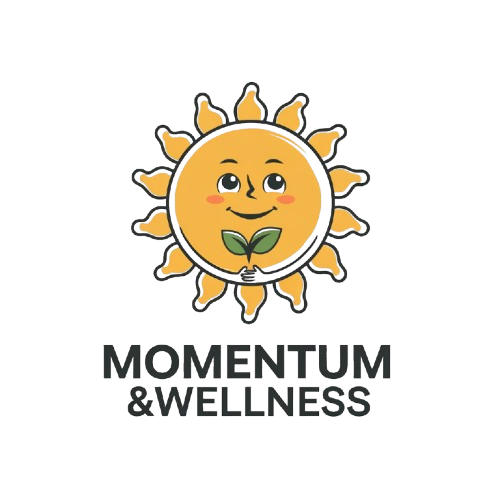
Our bodies rely on a delicate balance of nutrients to function at their best. Among these, vitamins play a pivotal role in maintaining overall health. When we lack certain vitamins, our bodies send out subtle (and sometimes not-so-subtle) signals to let us know something is off. Recognizing these signs early can help prevent more serious health issues down the line.
Feeling Constantly Tired
One of the most common and easily overlooked signs of a vitamin deficiency is fatigue. While feeling tired can often be attributed to a busy lifestyle, chronic exhaustion may indicate a lack of essential vitamins. For example, low levels of vitamin D, which helps regulate energy and mood, can leave you feeling sluggish and unmotivated. Similarly, a deficiency in B vitamins, particularly B12, can cause extreme tiredness as these vitamins are crucial for energy production and red blood cell formation.
Changes in Skin and Hair Health
Your skin and hair are often the first places to show signs of nutrient deficiencies. If your skin appears unusually dry, flaky, or prone to rashes, you might be lacking vitamin A or essential fatty acids. Vitamin C, known for its role in collagen production, is vital for maintaining the skin’s elasticity and healing wounds. Without enough vitamin C, you may notice slow-healing sores or even small spots of bruising.
Hair loss or thinning can also be linked to deficiencies. Low levels of biotin (vitamin B7) or iron can result in weaker hair follicles, leading to increased shedding. Dull, brittle hair may also signal that you’re not getting enough essential vitamins and minerals.
Weakness in Nails
The health of your nails can offer clues about your overall nutrition. Thin, brittle, or ridged nails may point to a deficiency in several nutrients, including iron, zinc, and biotin. In some cases, white spots on the nails can indicate a lack of zinc, while a spoon-shaped appearance might be linked to iron deficiency anemia.
Frequent Illnesses
A robust immune system requires a steady supply of vitamins to function effectively. If you find yourself catching colds frequently or struggling to recover from infections, it might be a sign of vitamin deficiency. Vitamin C and vitamin D are particularly important for immune health. Vitamin D helps regulate immune responses, while vitamin C supports the production of white blood cells, which fight off infections.
Muscle Weakness and Bone Pain
Persistent muscle weakness or unexplained bone pain may signal a deficiency in vitamin D. This vitamin plays a key role in calcium absorption, which is crucial for strong bones and muscles. Without enough vitamin D, you might experience aches, pains, or even a higher risk of fractures. In severe cases, low vitamin D levels can lead to rickets in children or osteomalacia in adults, conditions that weaken the bones.
Vision Problems
Vitamin A is essential for maintaining good vision, particularly in low-light conditions. A deficiency in this vitamin can lead to night blindness, a condition where it becomes difficult to see in dim light. Prolonged lack of vitamin A may also result in dry eyes and, in severe cases, damage to the cornea, which can lead to permanent vision loss.
Tingling Sensations and Numbness
If you experience frequent tingling sensations, numbness, or even a burning sensation in your hands or feet, it could be a sign of vitamin B deficiency. Vitamins like B6, B12, and folate are crucial for nerve health. Their absence can lead to nerve damage, causing uncomfortable sensations or even difficulty in movement if left unaddressed.
Cracks at the Corners of the Mouth
Painful cracks or sores at the corners of your mouth, medically known as angular cheilitis, can be a sign of insufficient riboflavin (vitamin B2) or iron. These symptoms are often accompanied by a sore tongue or a feeling of dryness in the mouth.
Mood Changes and Mental Health
Your mental health can also be affected by a lack of essential vitamins. For example, low levels of vitamin D have been linked to depression and anxiety. This is because vitamin D influences the production of serotonin, a neurotransmitter that regulates mood. Deficiencies in other B vitamins, particularly B6 and B12, can also contribute to mood swings, irritability, and even symptoms of depression.
Poor Wound Healing
If cuts and scrapes take longer than usual to heal, it might indicate a deficiency in vitamin C. This vitamin is crucial for collagen synthesis, which helps in the repair of skin and tissues. A prolonged deficiency can lead to scurvy, a condition characterized by bleeding gums, joint pain, and fatigue.
Understanding Your Diet
While many signs of vitamin deficiencies can be alarming, they are often reversible with dietary changes or supplementation. It’s essential to consume a balanced diet rich in fruits, vegetables, whole grains, lean proteins, and healthy fats to ensure you’re getting all the nutrients your body needs. Foods like citrus fruits, leafy greens, nuts, seeds, and fortified cereals are excellent sources of essential vitamins.
If dietary changes alone aren’t sufficient, consult a healthcare professional. They may recommend specific supplements based on blood tests to address deficiencies. For instance, vitamin D supplements are often prescribed for individuals who don’t get enough sunlight, while iron supplements may be recommended for those with anemia.
Preventing Deficiencies
The best way to prevent vitamin deficiencies is through proactive measures. Regular check-ups and blood tests can help identify any potential issues before they become severe. Additionally, paying attention to your body’s signals and making necessary lifestyle adjustments can go a long way in maintaining optimal health.
In conclusion, recognizing the signs of vitamin deficiency is an important step towards better health. By addressing these issues early, you can support your body’s needs, enhance your energy levels, and improve your overall quality of life. Remember, your health is an investment, and taking the time to care for your body today will yield lasting benefits in the future.



